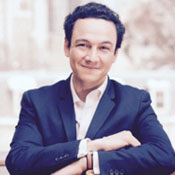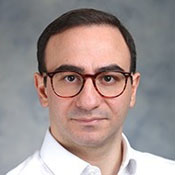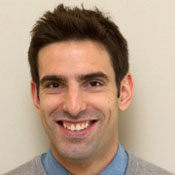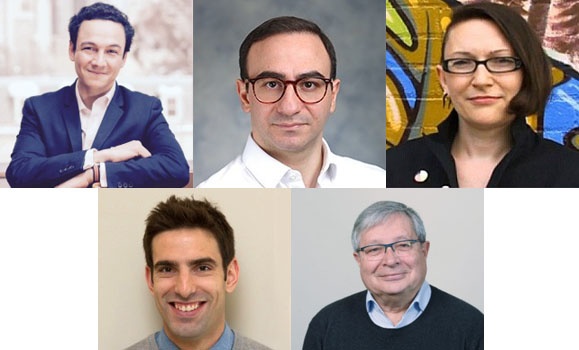Three Dalhousie scholars are part of the newest cohort of Canada Research Chairs (CRCs).
Established 20 years ago, the Canada Research Chairs program continues to provide opportunities for researchers to excel in their fields and build teams of experts at Canadian institutions. This spring, the Government of Canada invested $140 million towards 182 new and renewed CRCs.
The Canada Foundation for Innovation (CFI) also made an important investment towards these chairs. It is providing more than $4.6 million in new funding for research infrastructure, supporting 21 CRCs at 16 institutions.
āDalhousie is proud to be home to this incredibly talented group of chair holders who are playing a critical role in positioning our university as a leader in research,ā says Alice Aiken, vice-president research and innovation at Dalhousie. āNot only are they conducting research that improves our depth of knowledge and quality of life, they are also helping to train the next generation of leaders.ā
Meet Dalhousieās newest Canada Research Chairs
 Dr. Kiran Banerjee, Faculty of Arts and Social Sciences
Dr. Kiran Banerjee, Faculty of Arts and Social Sciences
Canada Research Chair in Immigrant and Refugee Integration
Forced migration has become a widespread feature of the world. The population that has been displaced globally exceeds 70.4 million, representing the highest figures on record. Durable solutions for refugees have deteriorated in recent decades and the last few years have seen a dramatic contraction in global resettlement capacity, alongside the consolidation of highly restrictive asylum policies.
Dr. Banerjee will be studying these challenges through three interlinked projects, which consist of:
- A longitudinal analysis of private refugee resettlement in Canada
- A study of asylum policy frameworks within North America
- An analysis of the role of international organizations in driving global migration governance
 Dr. Vittorio Maselli, Faculty of Science
Dr. Vittorio Maselli, Faculty of Science
Canada Research Chair in Coastal Zone Processes
To what extent extreme waves generated by cyclones and tsunamis represent a hazard for Atlantic and Arctic Canada is poorly understood, and a clear picture of the consequences of climate change on coastal processes is still missing.
Dr. Maselli will evaluate coastal vulnerability by defining the recurrence time of pre-industrial cyclones and tsunamis, and will explore how climate change impacts the erosion, transport, andĀ accumulationĀ of sediment from source to sink.
The results will support the management of Canadian coastal zones and will provide additional understanding on future climate change projections.
 Dr. Margaret Robinson, Faculty of Arts and Social Sciences
Dr. Margaret Robinson, Faculty of Arts and Social Sciences
Canada Research Chair in Reconciliation, Gender & Identity
Efforts to forcibly assimilate Indigenous children into settler culture, via methods such as residential schools, devastated Indigenous languages and traditional roles for two-spirit people. Despite this, reconciliation rarely engages with issues of gender or sexuality.
Dr. Robinson wants to help repair this damage by exploring the Indigenous New Wave, an international artistic movement distinguished by the strong voice of two-spirit artists. Robinson will partner with two-spirit community members and student trainees to explore how the Indigenous New Wave can support Indigenous gender and sexual identities, promote Indigenous language fluency, and enhance the well-eing and cultural identity of Indigenous communities.
Dr. Robinson will also be supporting Miākmaq language revitalization and pedagogy, and conducting community-based research with urban and non-status Indigenous populations.
Renewed researcher chairs
In addition, two existing Canada Research Chairs from Dal have been renewed.
 Dr. John Frampton, Faculty of Medicine
Dr. John Frampton, Faculty of Medicine
Canada Research Chair in Cellular, Biomaterial and Matrix Interaction
The overarching goal of Dr. Framptonās research program is to build upon the design strategies developed for soft tissue engineering in the first term of the chairship, and to explore tissue engineering and biomaterials science in the context of immunology.
Five projects are proposed, two of which extend the work from Dr. Framptonās previous CRC term, and three that delve into new research areas that will interface the biomaterials science and tissue engineering expertise of his lab with leading-edge immunological science through collaboration with prominent health science researchers.
 Dr. Stan Matwin, Faculty of Computer Science
Dr. Stan Matwin, Faculty of Computer Science
Canada Research Chair in Interpretability for Machine Learning
Recent important breakthroughs of modern Machine Learning (ML) and Deep Learning methods are accompanied by the concerns about transparency and fairness of ML systems. In this context, interpretability - understood as the ability to explain and present ML systems to humans - becomes an important requirement for modern ML systems.
Dr. Matwinās research program will tackle several important aspects of interpretability, including novel use of relational knowledge representation techniques in which he has significant accomplishments. The programās principal axes are the involvement of graduate students, as well as collaborative applications of Machine Learning in Dalās signature research clusters of Sustainable Ocean and Healthy People, Healthy Communities, Healthy Populations.
More information about the Canada Research Chairs can be found .

